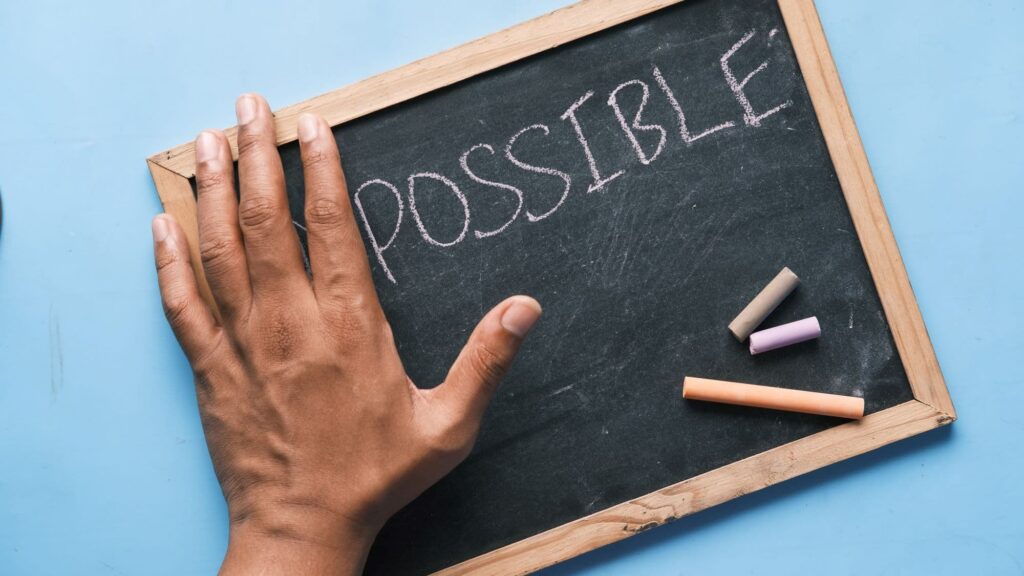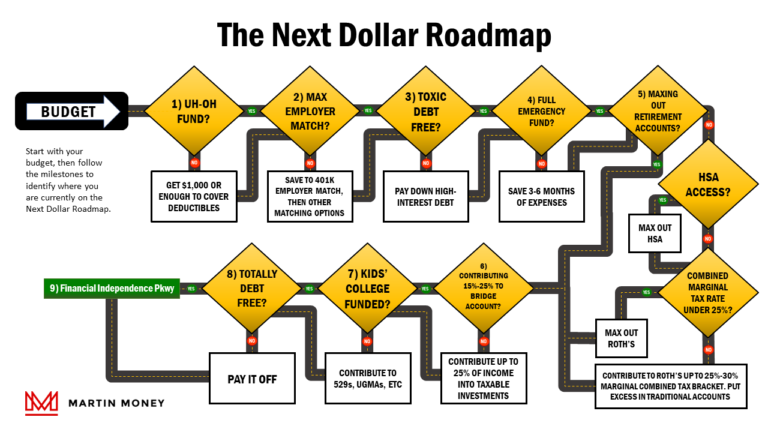How Being a Victim Keeps You from Being Wealthy
Constantly viewing one’s self as a victim is like carrying around a mental ball and chain. Victimhood gives us the unfortunate permission to achieve less because we view ourselves as disadvantaged, and thus, become self-fulfilling prophets of our own shortfalls financially.
I hope this post doesn’t come across as harsh.
When I was 34 my employer at the time hosted a health fair at work. Among other things, they were offering a free lipid panel for employees. It had been a while since my last blood lab and I didn’t have any good reason to object, so I signed up.
At 34, I was convinced that I was still in perfect health even if I was a few pounds heavier than I was in my 20s.
I mean, that weight gain is only natural, right? As we move forward in career and family, our level of responsibility increases and our focus on health has to pay a bit of a price so we can get it all in.
Well, whether there is any merit to that our not, the level of cholesterol in my blood didn’t care. My sedentary lifestyle had led to a pretty high level of LDL cholesterol for a guy in his mid-30s.
I was shocked.
I knew I wasn’t focused on my health, but I didn’t think cholesterol would be an issue until I was 50 or something. My plan was to refocus on exercise when my kids were more grown and I had an easier work/life balance.
There are a lot of reasons and excuses we can give for poor health, some may even be true.
I could have blamed my job and the hours it required.
I could have blamed my kids for requiring too much of my free time for me to schedule exercise for myself.
I could even blame the glutenous cultural relationship we have with food in the South.
The problem is no matter how much I complain about such injustice and lack of fairness, the bad cholesterol in my body is just going to keep on climbing unless I do something about it.
Thankfully, personal health doesn’t leave you with many other people to blame. If you’re unhealthy, then you’re also probably mostly responsible for that yourself.
Knowing this made it a little easier to identify that my problem was me.
Thankfully, I made some changes, lost weight, and got back into shape. It was a real wake-up call.
Similar to our health, we have a few options to consider when we aren’t satisfied with our financial situation. As we’ll see in this post, there are different ways we can view ourselves as victims, create villains to support our claim, then allow these factors to convince us there’s nothing we can do about it.
As we’ll also see, the difficulty with playing a financial victim is the number of convenient people or factors we can erroneously credit with our unhappy circumstances instead of fostering the determination to overcome these hurdles to success.
Victimhood
If you have kids, you know that we are all born with an innate sense of fairness. My own children are incredibly astute at noting even the slightest inequality in our parenting.
“He got one more m&m than me!”
“She was allowed to play on the Nintendo for 2 minutes longer than I was!”
And my personal favorite…
“It’s my turn to sit in the front seat!”
And why are they so quick to point out these perceived attacks on their civil liberty? Well, there could be a couple of reasons.
At times, my kids just want to be treated equally. They don’t want to feel like they are somehow inferior in any way to their sibling.
Other times, it’s a tool to manipulate their mother or myself into giving them more of something. If they can fabricate the notion that we are being unfair to them, perhaps they’ll receive some sort of compensation in an effort to rectify the slight; maybe in the form of a cookie or extra E-time.
Finally, and perhaps worst of all, they want an excuse to avoid compliance with our instructions. If they want to accost their sibling with verbal or physical assaults, they use their status of victimhood to justify behavior that is inconsistent with the rules they’ve been given by Lisa and myself.
“Why did you kick your sister?”
“Because she laughed at me!”
Of course, the irony of all three of these scenarios is none of them actually cure injustice. In most cases, it’s making two wrongs in an effort to find one right.
We all know that’s a fool’s errand.
Thankfully, as adults, some of us have matured to the point where these trivial matters have less and less significance to us, but the underlying awareness doesn’t really ever disappear.
Instead of the front seat, we’re focused on who’s getting promoted, who has the nice house or car, and how much playing time our kid got in the last game.
It’s important to note this similarity because our underlying motives are usually not that far off from when we were kids.
We are hoping to feel a sense of equality, we seek to manipulate, or perhaps we want to justify poor behavior.
And just like when we were kids, turning to motives like these won’t ever really result in any improvement of our own situation.
I can rail against the tax code until I’m blue in the face. I may even win an appeal with the IRS or successfully lobby my congressman to have a law changed.
But it won’t ultimately be the determining factor in whether or not I’m successful financially.
I can whine to my boss about how undeserving my colleague was for that promotion, but that doesn’t mean I’ll get one.
Finally, I can use wealth disparity as a basis for all sorts of financially nefarious behavior, but that’s more likely to put me in an even worse spot than to result in affluence.
Ultimately, having the mindset of a victim is counterproductive to financial wellness because it distracts us from the strategy that is most likely to result in success.
Using the examples provided above, wouldn’t we be more likely to have a successful outcome if we simply put a strategic tax plan together instead of investing hours campaigning against the injustice of the IRS?
Wouldn’t we be more likely to receive a promotion ourselves if we ask for feedback or seek to build our own skillset, instead of throwing colleagues under the bus whenever a convenient opportunity presents itself?
And I’m sure you’d rather not go to jail for trying to be the modern version of Robin Hood, so don’t let the man keep you from taking care of yourself.
Playing the victim is destructive because it gives us permission to do little or nothing instead of putting forth the effort to achieve more. It provides a mental justification for laziness or mediocrity.
Victimhood convinces us that we can’t get ahead because we can’t control our outcomes.
Victimhood is a lie.
Villains
Another popular method for deflecting responsibility is to create a villain for your troubles.
This is craftier than playing the victim because it personifies the basis for our unsatisfactory condition into an ugly, mean, unjust person or entity.
It also carries the illusion that our circumstances are beyond our control even further than victimhood alone.
When I was in college, I had a history professor with whom I didn’t exactly agree on certain political points.
Against my better judgment, I would occasionally challenge some of the things she’d say in class because they were stupid.
She wasn’t being malicious or unethical, some of her viewpoints were just really close-minded in my opinion. And I was never disrespectful or antagonizing, I just couldn’t bear for such nonsense to go uncontested.
We simply didn’t see the world from the same point of view, but I never imagined it would impact my grades.
I barely made a ‘C’ in the class because I failed the final exam. Before that test, I was pacing for an ‘A’.
For years, I’ve blamed Dr. Emasculation (not really her name) for that grade, but now that I’m 20 years removed from her class and it doesn’t matter, I can accept that I didn’t fully prepare for the final as we were instructed.
One of the final essay questions was in reference to the civil rights movement. We were told that we better come prepared with more than just some examples from Dr. Martin Luther King Jr’s life.
He was the only civil rights leader I wrote about on the test, so I didn’t get any credit for that essay question. It was 50% of the final test score which means I made about 47 out of 100 on the exam.
Harsh? Probably so. I mean, Martin Luther King is kind of a central figure in the civil rights movement, but we were given fair warning to bring more to the table.
Dr. E has been my history villain for years. Putting her in that position has allowed me to justify my less-than-stellar grade while studying a subject that I actually enjoy.
Financially speaking, there are many villains we tend to create:
- The neighborhood or school we grew up in;
- Our parents;
- The forces of law or government;
- Our boss;
- Banks, investment companies, and the stock market at large;
- The 1% and The Man (whoever they are);
- The President;
- The cost of bread, milk, gas, or various other consumer products;
- , etc., etc.
Here’s the thing. Some of these are a little silly and some of these may actually have merit.
I’m not trying to make light of your situation and am fully prepared to acknowledge that you may have been or are currently being treated unfairly by these villains or others.
And even though we have lots of rules and laws designed to help ensure everyone gets a fair shake, we are all also very familiar with the harsh truth that life isn’t fair.
Well, here’s another harsh truth: no one cares as much about your problem as you do.
- It’s unlikely that anyone is going to come along and rectify the situation just so you can be happier about your finances.
- It’s unlikely that others will stop competing for promotions or kissing up to the boss so the next advancement is given fairly.
- The Man and his 1% friends are not going to stop trying to squeeze every penny of profit from every endeavor they pursue.
- The cost of nearly everything is going to continue to rise.
- Do I even need to explain why you are unlikely to see the government do anything helpful for you financially?
The way I see it, we really have two options for a response.
First, we can continue to highlight these villains as the source of our every financial struggle while simultaneously hoping things change somehow, or…
We can make significant personal changes in order to eliminate the influence these villains have over us so we can take control of our financial well-being.
You see, we can’t control most of the villains that pop up in our lives. What we can do is choose whether or not we are going to allow them to have maximum control over us by doing nothing in response (inaction), or we can minimize their level of control by taking action.
For example, you may not have had parents that taught you anything about money growing up. There’s no doubt that inheriting a certain working knowledge of finance is a huge advantage coming into adulthood.
If you didn’t get that, don’t allow victimhood to keep you in ignorance.
This is the information age. There are volumes and volumes of information available to anyone who’s willing to look for it. You just have to make the effort to do so.
Is your boss a jerk? Maybe it’s time to look elsewhere for a job.
Feel like you pay too much in taxes? Well, too bad. Join the club. Then, arrange your income and finances so you pay the lowest amount you legally owe.
Ignore what you can’t control. Take action. Determine for yourself what your outcome will be and don’t leave it to anyone else.
Lean Into the Game
I’ve always enjoyed strategy games.
Risk, Dominos, Catan, and Ticket to Ride are a few that come to mind.
In these kinds of games, you’re dealt some sort of hand or set of resources that you then must employ into a strategy so you can win the game.
Sometimes the hand you get dealt is great. Sometimes it isn’t.
Monopoly is one strategy game I don’t enjoy that much because it takes forever and, generally, whoever is lucky enough to land on the right properties early in the game is going to win. It just takes forever to carry it out.
By the end, the only person having fun is the winner because everyone else has grown weary of the inevitable march to their opponent’s dominant victory.
Money is a lot like a strategy game to me.
Some of us are dealt good hands and some of us aren’t.
In a game like monopoly, you can walk away or declare an early victory for someone well-positioned to win, but in real life, you don’t get to quit.
In real life, if you ignore the game you just get stuck in the same rut you’ve always been in while the world carries on without you.
Sure, you may not get dealt a good hand and it may not even be a fair one, but you don’t have any choice but to play the one you’ve got. That is our reality.
So, learn how to play by educating yourself about money. Optimize your strategy and outcome by arranging what you have as effectively as possible.
Finally, don’t quit. Be tenacious. Keep looking for ways to improve your hand, regardless of what circumstances attempt to knock you off track.
Lean into the game, don’t run from it.







